Ryan:
With where I grew up, it gets a lot of bad press for being quite a depressed kind of rundown place where people don't really let you explore your dreams and they kind of put you down. It's not really multicultural. Me having a darker skin tone, I was seen as inferior to a lot of people. I never had a father present in my life. It was a struggle not having any positive male role models to look up to.
Ryan:
At the beginning, there wasn't many friendships at all. As the kind of, the tenure of primary school developed, there were a few, but they weren't sustainable. I think it was much more who's the coolest and who's the most popular, and they think that they become a better person by hanging around with the so-called popular person. And I was always the opposite of that. The smallest things started just kind of name-calling. The usual words, the N-word. And then that escalated. People would kind of pick up rocks and throw them at, aim them at my head while repeatedly using derogatory terms. One of the popular people, so to speak, used one of the knives in the canteen and he was repeatedly prodding me with it with the hopes of, of course, mass intimidation. It's like being dragged into an abyss and there was no light at the end of the tunnel. It was a really dark time for me.
Ryan:
You really lose grasp of who you are. When you come home from school and you're broken, you want some encouragement, and you want just a sliver of hope from people who are meant to be your family. So, to be constantly degraded at home, it was becoming more and more like a one-way street. And there was only one way that was heading, which is the permanent solution, and the worst solution.
Ryan:
School became an escape from home, and home became an escape from school. And I became an absolute alter-ego who would speak differently, who would portray himself differently. I'd pretend that my upbringing was the absolute opposite of what it really was. I'd pretend that I had a lot of money, and I'd come from a really privileged background. It didn't give me positive attention, but it did give me attention. At this point it was any attention is better than feeling that you're just locked away in a drawer. There was nothing in that suit anymore. It was just a complete character. It was just a complete theatrical mask. On the mornings, I would physically vomit at the thought of who I was becoming at my time there. And it resulted in me refusing to go at school. Which gradually amplified to the point where I wouldn't leave my room. I wouldn't respond at all. It's kind of the Jenga tower bricks had been building and building and building at this point. Two-and-a-half years into secondary school, the Jenga tower collapsed, and I fell into myself. The worst time of my life. I wouldn't allow any light into the house. I'd be huddled in the foetal position. And no form of contact in the day. I'd cry through the night. I was refusing to eat, feeling so sick and anxious. I kinda lost the first layer of skin in my arms and my legs 'cause of the sweating and the excessive scratching.
Ryan:
There was no support really at this time. It was just confusion from the people who I'd lived with. And their comments would become more and more extreme. My mum would say there's nothing wrong with you. You're just doing it for attention. My grandma has five sisters and six brothers. One of her sisters is quite medically educated. She got involved and she held out a helping hand. The first time she tried to see me, I ran out of the house and so there was just absolute fear. That night, emergency CAMHS were called. I was, as ever, paralysed in the foetal position. I was really unresponsive.
Ryan:
And that's when my auntie came and she offered me to go and live with her in a place where I could eventually feel safe. And that's when my time at CAMHS started. I remember the first time I met him, and something already felt different. And it didn't take me long to realise that this felt like a male who I could trust.
Ryan:
Adolescence, it is meant to be that point where, you know, you find who you are. And I think I finally know who I am.
Video summary
Narrated in first person, this film explores the impact of experiencing bullying and isolation in your community.
RyanŌĆÖs testimony is open and honest, and creates an intimate portrait into the impact of other peopleŌĆÖs behaviour on an individual.
He understands the root of his mental health problems as a build up of various different things, most notably the (often racial) abuse, both physical and verbal, which he received at school.
Feeling out of place at school and at home, he had nowhere to turn and no one to talk to.
He stopped attending school and felt no solace at home, so his mental health only worsened, to the point where he was having suicidal thoughts.
He was eventually introduced to CAMHS (which is Child and Adolescent Mental Health Services), and found the help through the services they provide.
RyanŌĆÖs story tackles subjects many young people in the UK may experience, from bullying, experiencing racism, feeling isolated and being unsure of your own identity.
This film then acts as an important lens to how this feels, and how hard it can be to see where help can be found.
Ryan also struggled with opening up about his depression, and without a father figure in his life, he had no outlet for his emotions, and no understanding of how to manage them.
It is understood lots of young people, especially young men, find it hard to express their feelings/emotions or to feel valid when they do.
RyanŌĆÖs story is a testament to how important and life changing open conversations are to recovery.
This film can be seen as a springboard into the discussion of how important it is to feel able and safe enough to speak up.
Due to the sensitive nature of the subject matter, we strongly advise teacher viewing before watching with your pupils.
Teacher Notes
Key Stage 3
Start by discussing the use of avatars in gaming. Why are these used? Are they fun or can they be damaging? Do they encourage people to pretend to be who they are not? Do they encourage people to be out of touch with who they really are?
We all have different personas we use in different situations but Ryan built a totally false persona until he lost the grasp of who he really was.
Knowing who you are under the personas and being okay with who that real person is, is vital to good mental health.
Your pupils could draw and cut out two gingerbread people.
On one they could write or represent who they really are, on the other who they would like to be.
Then you could ask your pupils to place them close together or far apart according to how similar they are i.e. if your real self and your ideal self are the same then the gingerbread people should be on top of each other.
If they are very different the gingerbread people will be placed a distance away from each other. The gap in between usually identifies the level of self-esteem you have at that time.
You could ask your pupils: What could you do to help your real self and ideal self become better friends?
If Ryan had done this exercise what would his gingerbread people have looked like? Use this exercise to discuss how ŌĆślostŌĆÖ Ryan became and what had caused this.
Think about who Ryan had to turn to and who would listen.
Discuss in groups the benefits of being able to express your emotions, even if it is just to one person.
Also discuss why not having a father present might have had an impact on Ryan and why this can be hard for lots of people who do not know both parents.
We would also suggest asking students to research the local and national support for people struggling with their mental health.
Key Stage 4
Use wooden blocks to construct a tower a brick at a time.
Give each student a wooden block and have them place their brick in the tower stating one thing they think contributed to RyanŌĆÖs decline in mental health.
When they have all placed their bricks, ask someone to describe what all these factors did to Ryan and then ask them to knock the tower down.
Remind them that Ryan said he felt like he was a tower and he collapsed and fell into himself. How must that have felt?
Rebuild the tower but this time each student places their brick stating one factor that could have changed or happened along RyanŌĆÖs journey to help him or change what happened e.g. who should have helped him with the bullying?
Ryan found a conversation was a really important part of his recovery.
Unpack why this is, and look into the reason why keeping your emotions bottled up can be damaging not only to mental health but ultimately also to physical health as these are linked.
Look into other therapies and counselling options which are available.
Discuss if women or men are more open about their mental health. If they are, why do you think this is?
This short film is suitable for teaching PSHE at KS3 and GCSE in England, Wales and Northern Ireland and Modern Studies at National 4 and 5 in Scotland.
Dealing with an eating disorder - Jack's Story. video
JackŌĆÖs story explores what it can be like to battle with an eating disorder in school.
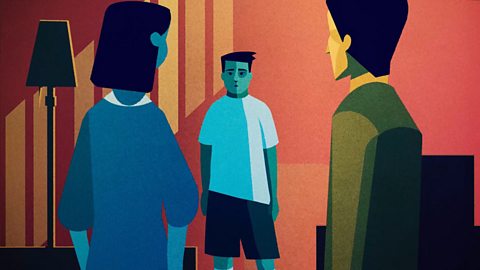
Addiction - Chloe's Story. video
ChloeŌĆÖs story explores how neglect and abuse led to an addiction to drugs.
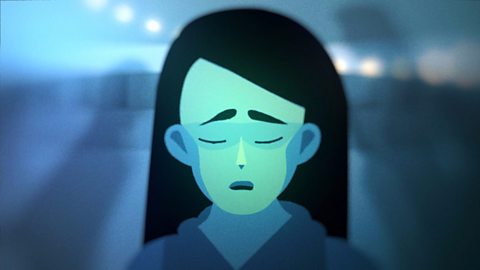
Anxiety - Aneeka and Sam's Story. video
Aneeka and SamŌĆÖs story explores what it is like when you are battling anxiety and the different reasons it can develop.
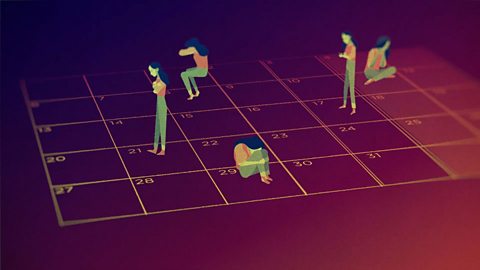
Self-harm - India's Story. video
IndiaŌĆÖs story explores what it can be like to battle with severe anxiety and self-harm.
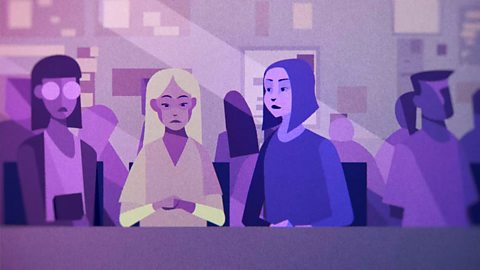
Depression - EleanorŌĆÖs story. video
EleanorŌĆÖs story explores what it can be like to battle with depression and suicidal thoughts and the effect it can have on your life.
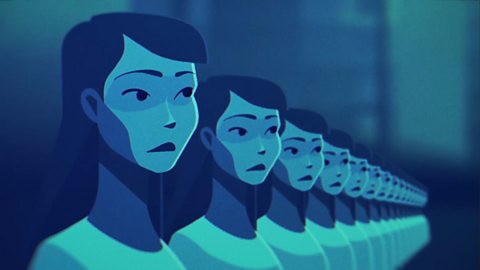
╠²